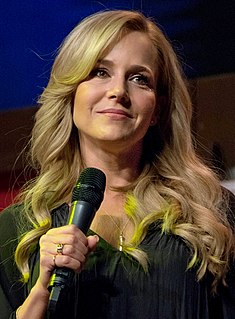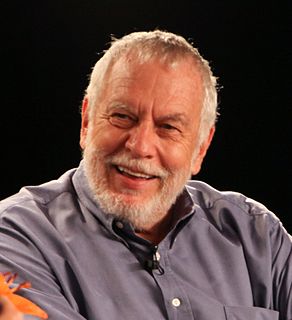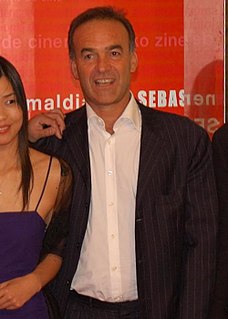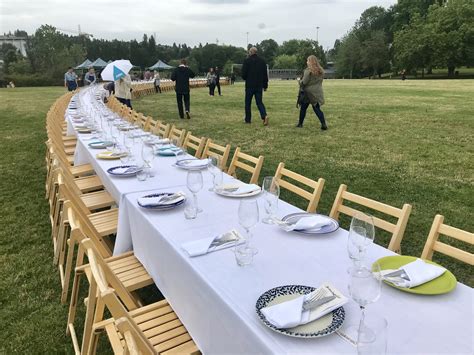A Quote by David Toop
David's [Cunningham] a very interesting character. He has more integrity than is good for him. So, everything he did after that sort of undermined what he'd done. Other people who kind of took life more cheaply, would have really gone for it. David almost did everything he could to scupper the whole thing, which I very much admire, but of course it was deeply irritating then, because we wanted to make a bit of money! So we made this very catchy tune and then he added a bunch of weird stuff which was all very strange.
Quote Topics
Added
Admire
After
Almost
Because
Bit
Bunch
Catchy
Character
Could
Course
David
Deeply
Did
Done
Everything
Gone
Good
Him
Integrity
Interesting
Irritating
Kind
Life
Made
Make
Money
More
Much
Other
People
Really
Sort
Strange
Stuff
Than
Then
Thing
Took
Tune
Undermined
Very
Very Interesting
Wanted
Weird
Weird Stuff
Which
Whole
Would
Related Quotes
I was very scared when I saw it, because Dune was for me very important in my life. I was very sad I could not do it. When I saw that David Lynch would do it, I was very scared, because I admire him as a movie-maker, and I thought he would do well. But when I see the picture, I realize he never understood this picture. It's not a David Lynch picture. It's the producer who made that picture, no? Who made this horror. For David Lynch, it was a job. A commercial job. It never was that for me.
I was so lucky because I started working very young. And my father was very wealthy and I didn't need to work. I did my films. I was very well paid for my age, and I could make choices, decide not to do a film for six months and wait until I'd get the right thing. Which made me quite a coward, you know. It's so easy to say no to stuff, and then, after a while, it's very hard to go back in.
If you took a couple of David Bowies and stuck one of the David Bowies on the top of the other David Bowie, then attached another David Bowie to the end of each of the arms of the upper of the first two David Bowies and wrapped the whole business up in a dirty beach robe you would then have something which didn't exactly look like John Watson, but which those who knew him would find hauntingly familiar.
It's really interesting - I wanted to become an actress when I was young because I wanted to do romantic comedy. And I did a lot of comedies very early on, but then my career took kind of a left turn with Joss Whedon, and I discovered that doing genre work is actually more interesting as an actor, because the given circumstances are more extreme. And it really is creatively more challenging.
I like to use a bit of chaos when I shoot. I think it may be something from the way I shot my first film - I was very scared, of course, and I prepared everything, I wanted to make sure that the characters did the right thing at the right time on the storyboard. But then I realised that in life, there is so much more than what you can predict or write in advance, that when you shoot the story, it's good to leave some gaps where you lose control. I think this combination of chaos and organisation gives a kind of quality.
Media is so weird; everything is so accessible now. It used to be this thing where, if you did something on 'This American Life,' this predates me, but when David Sedaris did it, for example, it would just play, people who heard it heard it, and then the book would come out a year later, and people would be like, 'Ahh, I kind of remember that.'
I was very proud of that, of taking women and making them vulnerable and so I continued doing that. Right after Beaches I did "Pretty Woman", then I did "Frankie and Johnnie" and then I did "Other Sister" and "Princess Diaries" so that helped me get into the vein there of understanding women and trying to make them very pretty and very interesting.
We had some really powerful technology - Atari always was a technology-driven company, and we were very keen on keeping the technological edge on everything. There's a whole bunch of things that we innovated. We made the first computer that did stamps or sprites, we did screen-mapping for the very first time, and a lot of stuff like that.
Imagine, to become a priest there are eight years of study and preparation, and then if after a while you can't do it, you can ask for a dispensation, you leave, and everything is OK. On the other hand, to make a sacrament (marriage), which is for your whole life, three to four conferences...Preparation for marriage is very important. It's very, very important because I believe it is something that in the Church, in common pastoral ministry, at least in my country, in South America, the Church has not valued much.
You know so many documentaries now are very carefully scripted before you start, and then people are sort of put in chairs which are beautifully lit, and they tell their stories and you do that with another 10 people and you then construct a story from what they say. You do a sort of paper thing, and then you put some images in-between, and that's your film. And that's so not what I think is a good documentary. It can be so much more than that, it should be much more of an adventure and much more uncertain... like real things are.
As you get drawn more and more into other activities, like political activities, very demanding, you have to find different rhythms of writing; I think that's the word I'm looking for, rhythms of creativity which then, of course, become very intense. I think your writing then tends to be very intensified simply because there are other demands which seem equally important.
I never ever would have thought initially it would have been someone like Pierce playing Charles. I think he has an innate likeability to him, as soon as you meet him he's very, very charismatic. Charles, on the page, was someone who's very domineering and quite a negative character, and Pierce just by being Pierce can change the whole dynamic of it, which made for a much for interesting relationship. He's a really nice guy.
I didn't know enough as a writer to understand why I needed to do this, but I understood in a very gut way that I could not entertain those thoughts of pleasing people and write this book - that it would be a very different book. Without really sort of investigating that instinct, which I'm glad for, I just made a conscious decision to put blinders on and not think about anything and put it all in. And I did. I put everything in. I had to look at the whole picture to see what I needed.




































